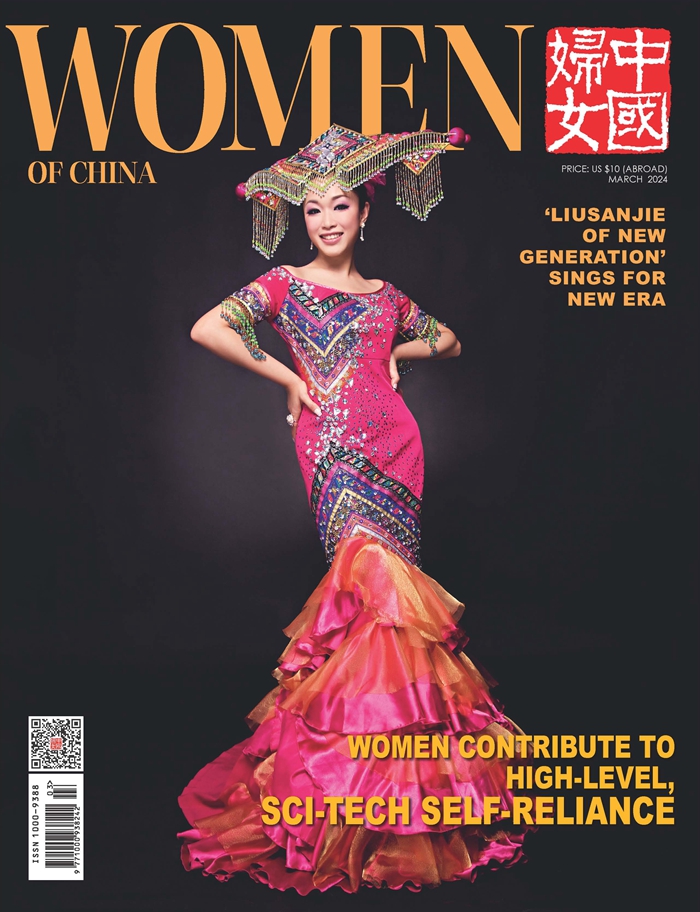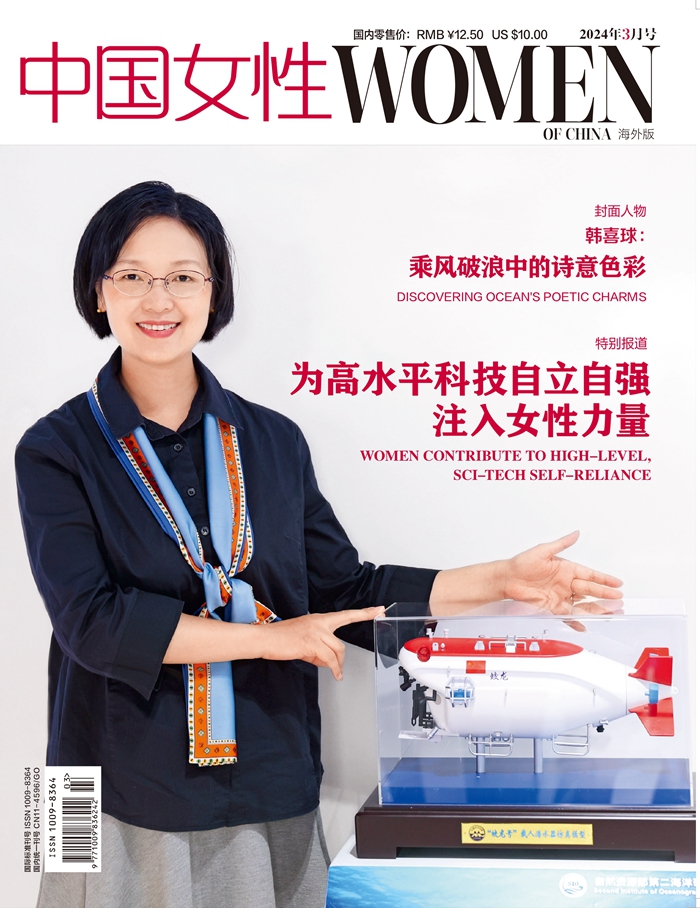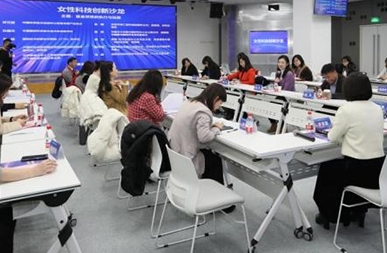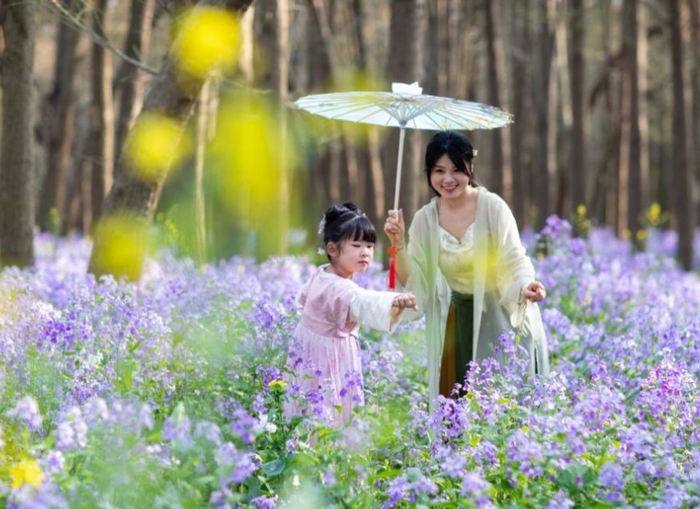Chinese women' focus on quality of life boosting spending power
The women's healthcare and wellness management market in China is attracting increased attention thanks to rising wellness awareness and improving consumption potential.
Data from global market research consultancy Acumen Research and Consulting showed that the women's global healthcare and wellness management market reached $25.3 billion in 2021, with the sector expected to grow to $97.3 billion by 2030. Therefore, the compound annual growth rate between 2022 and 2030 is expected to be over 16 percent.
By some census measures, China has the highest women population in the world, thus the women's healthcare management market in the country is developing at a healthy pace.
The seventh national census data showed that China's women population stood at 688 million by Nov 1, 2020, among which 436 million were between 15 and 59 years of age, therefore contributing to strong consumption potential.
According to the 2021 Report on Women Health Consumption issued by Ali Health, girls and women are spending an increasing amount of money on healthcare, with their related expenditure surging at a CAGR of 20 percent.
"Women have become an absolute main driver of health consumption. With rising awareness of the importance of health and wellness and improvements in consumption capability, the women's health management consumption sector has been growing rapidly," said the report.
In recent years, entrepreneurial energy in the women's healthcare sector has risen. In May 2020, Kimon Angelides, founder of United States-based smart blood glucose management platform Livongo Health, established FemTec Health — a one-stop women healthcare and beauty services platform. By 2022, the company had completed three acquisitions and $38 million in financing.
In August 2021, Wang Qiangyu, former vice-president of intelligent mobile office platform Ding Talk, founded Testing OneLife, a women's healthcare management platform.
Several startups in the sector have emerged, including Oova, Heranova Lifesciences Holding, Kind-body, Tia and Teal Health, with capital flowing into the fast-growing industry.
Liu Yang, co-founder of Jinding Capital, said, "Those who win the hearts of women win the consumer medical services sector worth 10 trillion yuan ($1.4 trillion)."
With great market potential, global healthcare company Abbott has been investing in the sector in China for years. It continues to provide quality and trusted solutions to support women's health. In 2017, the company set up the Tulip Academy in China — a program committed to providing menopause-related education and training for physicians.
Norman Tang, divisional vice-president and general manager of Established Pharmaceuticals at Abbott China, said: "We believe women need all the support they can get. This is why we support the establishment of independent menopause centers in China to empower women going through menopause and give them an opportunity to get comprehensive support, with physicians trained to understand the specific needs of women going through this phase of life."
On May 12, the company launched a global initiative in Beijing, sharing a compilation of women's stories about menopause to raise awareness and empower more women to seek the support and care they need.
The company owns multiple branded generic medicines in the field of women's health, all aimed at making quality medicines more accessible to more women.
The women's healthcare management market mainly serves the needs throughout a woman's entire life cycle, including adolescence, adulthood, menopause and later stages of life. Among these periods, adulthood represents the biggest market and longest duration, as numerous subcategories contain business opportunities, such as anti-aging, assisted reproduction, pregnancy management, weight loss, postpartum rehabilitation, maternal and infant care, and gynecological exams.
"The large women population base means that the vast majority of women's healthcare management niche tracks have sufficient market space to accommodate two or more unicorns and listed companies," said Chen Ke, an investor who has been in the field for years.
HPV vaccines are a good example of this phenomenon. There are three domestically listed companies engaged in the research and development track of the sector — Chongqing Zhifei Biological Products Co Ltd, Beijing Wantai Biological Enterprise Co Ltd and Walvax Biotechnology Co Ltd. In terms of HPV vaccines, companies such as Ali Health, Baidu Health, JD Health and Pinduoduo are all involved in scheduled inoculations.
In the menstruation management sector, many enterprises have emerged, such as Dayima, Xiamen Meet You Co Ltd, Femometer and Leban Technology Co Ltd. And market competition is becoming increasingly heated.
Among these subcategories, industry experts noted that anti-early aging and weight loss sectors have been rapidly growing.
Currently, there is rising awareness among women about anti-early aging, and related demand is constantly being unleashed. Data from Wuhan, Hubei Province-based cosmetics information platform Bevol showed that among those between 18 and 35 years of age, more than 95 percent encounter early aging dermatological problems, with over 60 percent suffering from large pores, yellowish and dull skin, and over 30 percent complaining of wrinkles.
To combat early aging, women are showing increasing interest in anti-early aging products, and are willing to spend big money on them. Related products include injections, cosmetics, beauty equipment, drugs and health supplements.
Among such choices, in recent years, nonsurgical medical aesthetics have been booming. Data from market research firm Frost & Sullivan showed that in 2022, China's nonsurgical medical aesthetics sector totaled 120.7 billion yuan, growing 23.5 percent year-on-year and surpassing that of the surgical medical aesthetics market. The market is estimated to reach 415.7 billion yuan by 2030.
Specifically, based on different principles, nonsurgical medical aesthetics are mainly divided into injections and photoelectric treatment.
The core components of injectable products have four major functions: filling, inhibition, skincare and lipolysis. Research and development into these core modalities is of great significance for enterprises to build competitive barriers. At present, the core ingredients of facial injection products in the market mainly include hyaluronic acid, botulinum toxin, collagen and various regenerative ingredients.
Photoelectric instruments use lasers, radio frequencies, ultrasound and other energy forms to solve problems at different layers of the skin. Mainstream manufacturers include United States-based Cynosure, Candela and Lumenis, German's Fotona and Israel's Alma.
The rising visibility of the sector has attracted attention from the capital market. Data from VBData.cn, a Chongqing-based healthcare services platform, showed that in 2022, more than 50 venture capital or private equity institutions invested in photoelectric instrument companies.
"With technological breakthroughs in gene editing, cell therapy, brain-computer interface, artificial intelligence and regenerative medicine, anti-early aging products are likely to embrace more possibilities," said Hu Xuan, a medical aesthetics analyst at VBData.cn.
The weight loss sector is also attracting mounting attention. On June 28, Guangzhou, Guangdong Province-based weight management company Archealth submitted its prospectus to the Hong Kong bourse in preparation for an upcoming IPO. On July 12, Beijing-based sports technology company KEEP successfully listed in Hong Kong.
Meanwhile, in recent years, several domestic digital tech companies have invested in the subcategory, covering the fields of popular science, weight loss planning, weight loss guidance, and the healthcare information sharing community. However, there is a lack of hard evidence that such newcomers are able to offer comprehensive solutions.
To promote the sustainable development of the women's healthcare management market, Hu suggested that enterprises should expand their business scope throughout women's entire life cycle, as modern women increasingly pursue multilevel, diversified and personalized healthcare consumption experiences, such as cancer screening, traditional Chinese medicine rehabilitation, psychological counseling and genetic testing.
Meanwhile, he said that it is necessary to enhance the application of digital technologies in women's healthcare management consumption scenarios, as digital technology applications raise the efficiency of the industry, and offer data support related to entire lifecycle healthcare management for women.
"With the emergence of new companies and new technologies, the women's healthcare management sector is expected to flourish," Hu added.
(Source: China Daily)
32.3KPlease understand that womenofchina.cn,a non-profit, information-communication website, cannot reach every writer before using articles and images. For copyright issues, please contact us by emailing: [email protected]. The articles published and opinions expressed on this website represent the opinions of writers and are not necessarily shared by womenofchina.cn.






